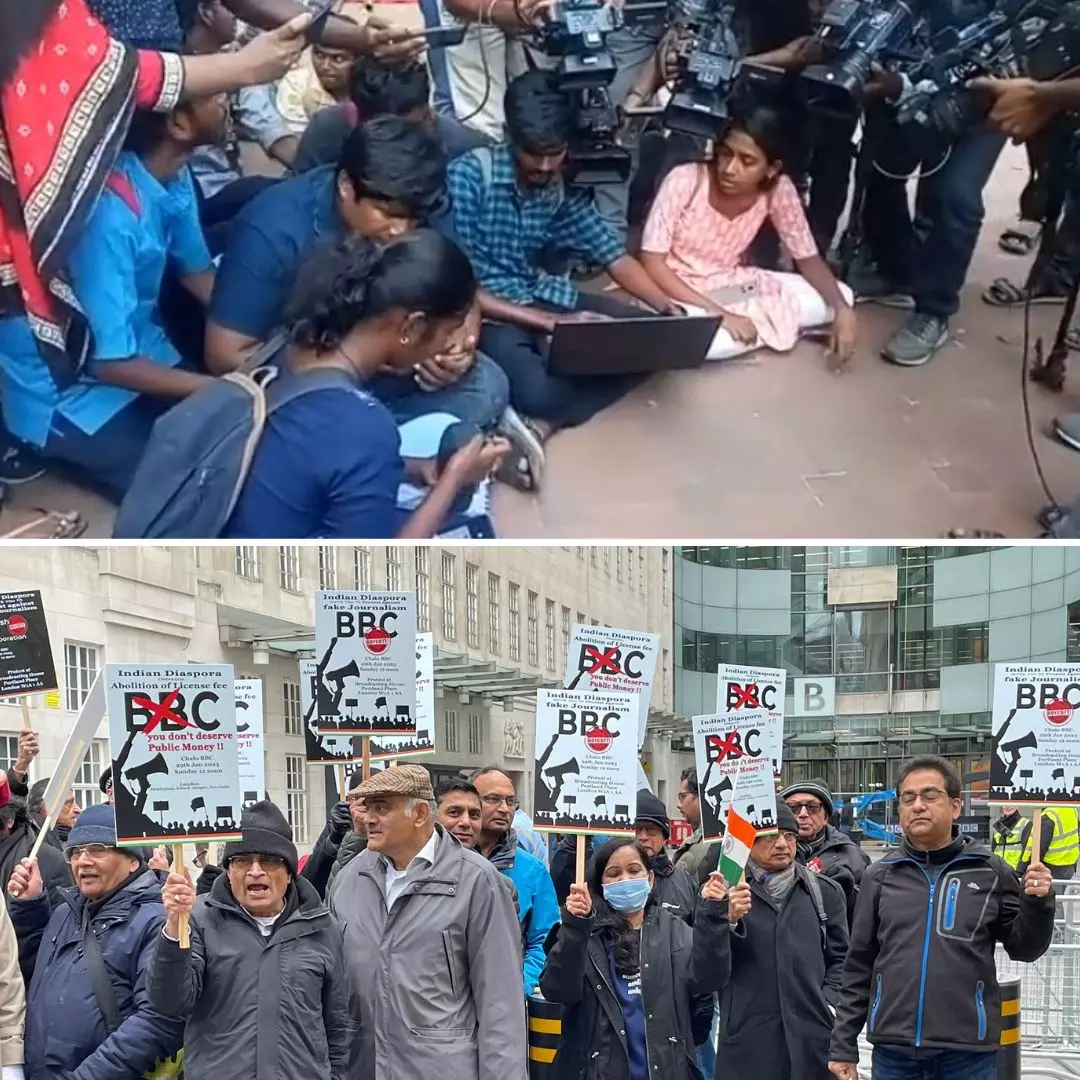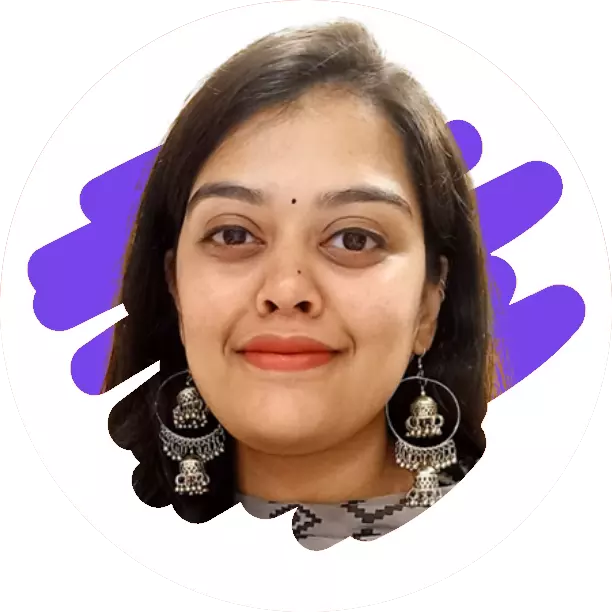
Image Credits: Twitter/@TanushreePande, Twitter/@sidhant
BBC Documentary Row: Protests In West To Ban Media House & Petitions In India To Investigate 2002 Riots
Writer: Laxmi Mohan Kumar
She is an aspiring journalist in the process of learning and unlearning many things. Always up for discussions on everything from popular culture to politics.
India, 30 Jan 2023 7:21 AM GMT
Editor : Jayali Wavhal |
She writes about gender issues, human interest, and environment.
Creatives : Laxmi Mohan Kumar
She is an aspiring journalist in the process of learning and unlearning many things. Always up for discussions on everything from popular culture to politics.
Amidst the ongoing BBC Documentary row, the Indian diaspora in England held protests outside the headquearters and regional offices of the British Broadcasting Corporation. In India, public screenings continue to be held and a Delhi-based advocate has moved the Supreme Court challenging the ban on the documentary.
Amidst the ongoing row over the British Broadcasting Corporation's (BBC's) controversial documentary 'India: The Modi Question,' several university students went ahead with screening the documentary and landed with disciplinary proceedings and detentions. Following this, now many groups of people picked up the issue and went ahead with protests and pleas. While large crowds of Indian diaspora in Britain held protests outside the BBC Headquarters and called for a ban on the organisation, a Delhi-based advocate has moved the Supreme Court challenging the ban and requesting the court to look into the BBC documentary and those directly and indirectly involved in the 2002 riots.
Freedom Of Expression VS Sovereignty Of Nation
Ever since the government imposed the emergency ban on the documentary, it has brought indirect publicity and saw collective efforts to screen the controversial documentary. It brought in the question of whether the ban backfired on the government.
- Active efforts to screen the documentary continue by student bodies across the country. In recent updates, the Rajasthan Central University in Ajmer suspended at least 11 students for watching the banned film. The list of the students who allegedly watched the documentary was released by the Akhil Bharatiya Vidyarthi Parishad (ABVP), after which 24 students were suspended from academics and the hostel for 14 days.
- In Himachal Pradesh, activists from the Students Federation of India (SFI) raised slogans and tried to stop the police from removing screens installed for the screening. This resulted in a minor scuffle, and the screening had to be stopped after 15-20 minutes. The Registrar of the Himachal Pradesh University then issued a notice to SFI to stop screening the documentary as it could create a law and order situation on the campus.
- A group of students at Mumbai's Tata Institute of Social Sciences (TISS) also watched the film on laptops and phones, despite the management warning the students against the screening. Students' association of the Film and Television Institute of India also screened the controversial BBC documentary on the 2002 Godhra riots in their campus on January 28.
"There's no projector. But we will be watching it...
— Parth MN (@parthpunter) January 28, 2023
...We will continue our protest screening in solidarity with students who were attacked by RSS goons and police in Jamia, JNU, Hyderabad."
From TISS, Mumbai, that watched the BBC Documentary today despite all odds. pic.twitter.com/G1thvZEdvz
- Apart from the institutions voicing their protests, a Delhi-based advocate has moved the Supreme Court challenging the ban on the documentary. A report by The Tribune stated that he requested the court to take action against those directly and indirectly involved in the 2002 Gujarat riots. Terming the Centre's ban as "mala fide, arbitrary and unconstitutional," petitioner ML Sharma urged the apex court to decide whether citizens under article 19(1)(a) have the right to see news, facts, and reports on the riots.
- Meanwhile, supporters of the Modi government continue to create tensions in the country as well as in the West. Several members of the Hindu Sena put up boards outside the BBC office in New Delhi, calling for a ban on the media organisation. They stated that "BBC is a threat to the unity and integrity of the country." A report by The Hindu quoted Hindu Sena Chief Vishnu Gupta saying that the BBC was prohibited in the country even during Indira Gandhi's tenure, and the ban was lifted only once the organisation submitted an apology.
- Large crowds of non-residential Indians in Britain held protests outside the BBC headquarters and their regional offices. Demanding BBC to stop broadcasting the documentary in the UK, they held placards with the slogans "Boycott BBC", "British Bias Corporation" and "BBC: you don't deserve public money."
Members of the Indian diaspora protests infront of the BBC HQ in London on its documentary on PM Modi pic.twitter.com/tZcJJ8Xjot
— Sidhant Sibal (@sidhant) January 29, 2023
- In the backdrop of the ongoing controversy, Prime Minister Modi, while addressing a rally of the National Cadet Corps (NCC), warned against the "attempts to divide" the country. In his words, "Bhaanti, bhaanti ki baatein nikaal kar, Maa Bharti ki santaano ke beech main doodh mein daraar karne ki koshishe ho rahi hein (Several issues are raked up to create divisions among the children of Mother India)."
- On the other hand, BBC has also stirred up another controversy in the West with a three-part documentary on the conflict in Ukraine and the lead-up to Russia's invasion in February 2022. According to a Business Standard report, the documentary had former British PM Boris Johnson alleging that Russian President Vladimir Putin "threatened him with a missile strike during an extraordinary phone call" ahead of Moscow launching its invasion.
Also Read: BBC Documentary Row: Section 144 Imposed At Delhi University, More Than 20 Students Detained
 All section
All section














